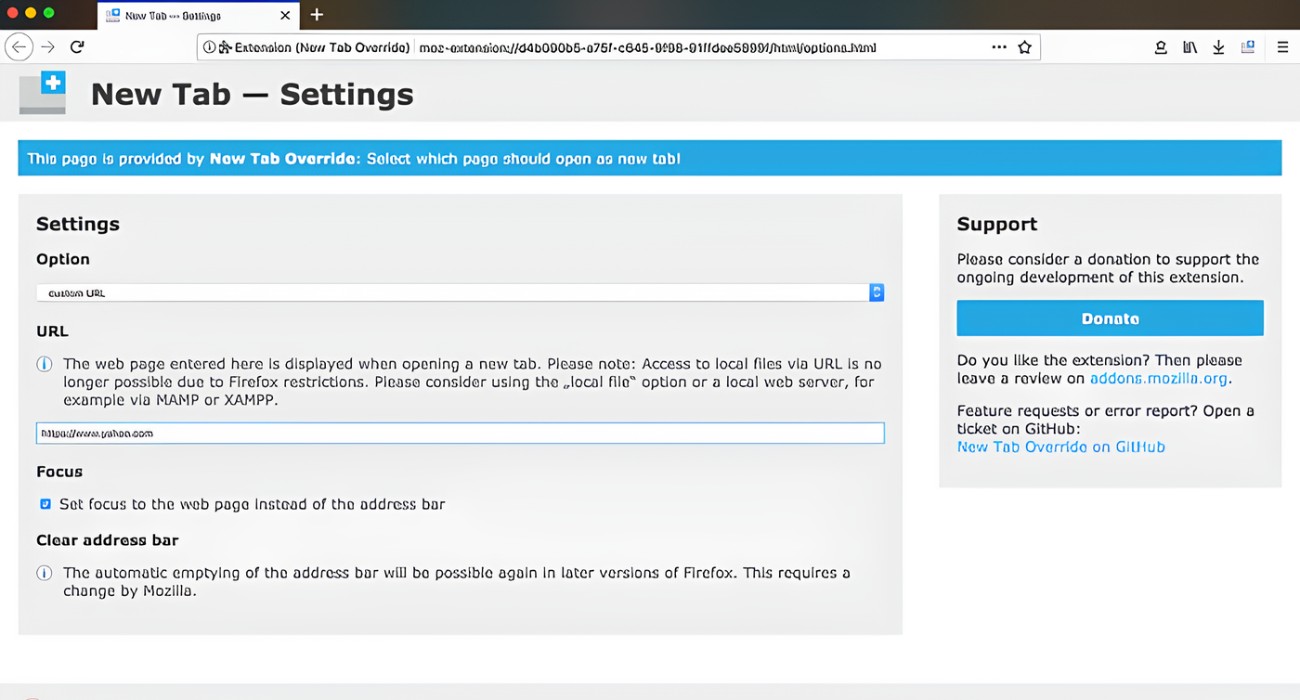Introduction
The digital realm is constantly evolving, and web browsers play a pivotal role in shaping our online experiences. Among the myriad of browsers available, Firefox has long been a stalwart champion of user privacy, security, and customization. However, recent developments have sparked widespread curiosity and concern about the future of this beloved browser.
Amidst the ever-changing landscape of web technologies, Mozilla, the organization behind Firefox, has been navigating a series of significant shifts. These changes have not only captured the attention of tech enthusiasts but have also prompted everyday users to ponder the implications for their browsing habits.
As the digital ecosystem continues to evolve, it's crucial to understand the dynamics at play within the browser market. Firefox's journey is emblematic of the broader trends shaping the digital landscape, and delving into its recent developments offers valuable insights into the evolving nature of web browsers and their impact on users.
The next sections will delve into the recent changes in Firefox, their impact on users, and the future plans for the browser. By exploring these facets, we can gain a comprehensive understanding of the current state of Firefox and its trajectory in the ever-evolving digital sphere.
Recent Changes in Firefox
In the realm of web browsers, Firefox has been a stalwart presence, renowned for its commitment to user privacy, security, and customization. However, recent times have witnessed a series of notable changes within the Firefox ecosystem, sparking widespread interest and speculation among users and tech enthusiasts alike.
One of the most significant shifts in Firefox's trajectory is the introduction of the Proton design refresh. This overhaul represents a concerted effort by Mozilla to revamp the browser's user interface, aiming to enhance user experience and modernize the visual aesthetics. The Proton design refresh encompasses a range of visual updates, including revamped tabs, menus, and icons, all geared towards delivering a more streamlined and visually appealing browsing experience.
Moreover, Firefox has embarked on a journey to bolster its privacy and security features, aligning with its longstanding commitment to safeguarding user data. The introduction of enhanced tracking protection and privacy features underscores Mozilla's dedication to empowering users with robust tools to safeguard their online privacy. These measures are pivotal in an era marked by growing concerns over data privacy and digital security, positioning Firefox as a formidable advocate for user-centric protection in the digital sphere.
Furthermore, Firefox has made strides in optimizing its performance and resource utilization, catering to the evolving needs of users in an increasingly dynamic digital landscape. The browser's focus on efficiency and speed underscores its responsiveness to the ever-changing demands of web browsing, ensuring that users can navigate the online realm seamlessly and with minimal friction.
Additionally, Firefox has embraced a more agile approach to updates and feature rollouts, aiming to deliver a more responsive and iterative user experience. This shift towards a more nimble update cycle reflects Mozilla's commitment to staying abreast of evolving user needs and technological advancements, ensuring that Firefox remains a relevant and adaptive browser in the face of rapid digital transformation.
The recent changes in Firefox underscore a concerted effort to fortify the browser's core tenets of privacy, security, and user experience, while also embracing a more agile and responsive approach to development and design. These changes not only reflect Mozilla's commitment to evolving with the digital landscape but also signal a renewed focus on empowering users with a browsing experience that is both secure and seamlessly intuitive. As Firefox continues to evolve, these changes serve as a testament to its enduring relevance and adaptability in an ever-changing digital ecosystem.
Impact on Users
The recent changes in Firefox have reverberated across the user community, eliciting a spectrum of reactions and implications for everyday browsing experiences. The introduction of the Proton design refresh has notably impacted users, ushering in a visually revamped interface that seeks to enhance usability and aesthetics. This redesign has the potential to reinvigorate user engagement, offering a fresh and modernized browsing environment that aligns with contemporary design trends. By streamlining tabs, menus, and icons, Firefox aims to elevate user experience, fostering a more intuitive and visually appealing interface that resonates with modern browsing preferences.
Moreover, Firefox's concerted efforts to bolster privacy and security features have profound implications for users. The enhanced tracking protection and privacy features empower users with robust tools to safeguard their online privacy, addressing growing concerns over data privacy and digital security. This proactive stance towards user privacy resonates deeply with individuals seeking a browsing experience that prioritizes their data protection and online security. As a result, these measures have the potential to instill greater confidence and trust among users, positioning Firefox as a stalwart advocate for user-centric protection in the digital sphere.
Furthermore, the optimization of performance and resource utilization in Firefox directly impacts users' browsing experiences. By prioritizing efficiency and speed, the browser endeavors to deliver a seamless and responsive navigation experience, catering to the evolving needs of users in an increasingly dynamic digital landscape. This optimization translates into tangible benefits for users, offering a browsing environment that is not only swift and responsive but also adept at adapting to diverse user requirements and preferences.
Additionally, Firefox's shift towards a more agile approach to updates and feature rollouts holds implications for users, signaling a more responsive and iterative user experience. This agile approach reflects Mozilla's commitment to staying attuned to evolving user needs and technological advancements, ensuring that Firefox remains a relevant and adaptive browser in the face of rapid digital transformation. Users stand to benefit from a more dynamic and responsive browsing experience, characterized by timely updates and feature enhancements that cater to their evolving needs and preferences.
In essence, the recent changes in Firefox have a multifaceted impact on users, spanning visual appeal, privacy and security, performance optimization, and the overall browsing experience. These changes collectively underscore Mozilla's commitment to evolving with the digital landscape while prioritizing user-centric enhancements that resonate with the diverse needs and preferences of its user base. As Firefox continues to evolve, these user-centric changes are poised to shape a browsing environment that is not only modern and secure but also seamlessly responsive to the ever-changing dynamics of the digital realm.
Future Plans for Firefox
Looking ahead, Mozilla's vision for Firefox encompasses a dynamic roadmap that underscores its commitment to innovation, user empowerment, and adaptability in the ever-evolving digital landscape. One of the focal points of Firefox's future trajectory is the continued emphasis on enhancing user privacy and security. Mozilla is poised to further fortify Firefox's privacy features, empowering users with even more robust tools to safeguard their online activities and personal data. This steadfast dedication to user privacy aligns with Mozilla's ethos of championing user-centric protection in an era marked by escalating concerns over data privacy and digital security.
Moreover, Firefox's future plans encompass a concerted effort to elevate the browsing experience through ongoing enhancements to performance and efficiency. Mozilla is committed to optimizing Firefox's speed and resource utilization, ensuring that users can navigate the online realm seamlessly and with minimal friction. This optimization extends to diverse devices and usage scenarios, catering to the varied needs and preferences of users across the digital spectrum. By prioritizing efficiency and speed, Firefox aims to deliver a browsing experience that is not only swift and responsive but also adept at adapting to the evolving demands of the digital ecosystem.
Furthermore, Mozilla's future roadmap for Firefox includes a focus on fostering greater customization and adaptability, empowering users to tailor their browsing environments to align with their unique preferences and workflows. This entails a continued commitment to providing users with a rich ecosystem of extensions and add-ons, enabling them to personalize their browsing experiences to a greater extent. Additionally, Mozilla is exploring avenues to enhance collaboration and productivity within the browser, aiming to integrate seamless workflows and tools that resonate with the diverse needs of users across various domains and industries.
In line with the broader trends shaping the digital landscape, Firefox's future plans also encompass a commitment to embracing emerging web technologies and standards. Mozilla is dedicated to ensuring that Firefox remains at the forefront of web compatibility and performance, aligning with evolving industry standards and user expectations. This entails a proactive approach to integrating cutting-edge web technologies, ensuring that Firefox users can seamlessly engage with the latest digital innovations and experiences.
As Firefox charts its course for the future, Mozilla's unwavering commitment to user empowerment, privacy, and adaptability shines through its strategic roadmap. By prioritizing user-centric enhancements, performance optimization, and the integration of emerging web technologies, Firefox is poised to continue its legacy as a stalwart advocate for user empowerment and a trailblazer in the ever-evolving realm of web browsers.
Conclusion
In conclusion, the recent changes and future trajectory of Firefox encapsulate a narrative of evolution, resilience, and unwavering commitment to user-centric innovation. The introduction of the Proton design refresh, coupled with enhanced privacy and security features, underscores Mozilla's dedication to fortifying Firefox's core tenets while adapting to the evolving needs of users in the digital sphere.
The impact of these changes on users is multifaceted, encompassing visual appeal, privacy and security, performance optimization, and the overall browsing experience. The Proton design refresh heralds a visually revamped interface that seeks to enhance usability and aesthetics, resonating with modern browsing preferences and potentially reinvigorating user engagement. Furthermore, the bolstering of privacy and security features empowers users with robust tools to safeguard their online privacy, instilling greater confidence and trust among individuals seeking a browsing experience that prioritizes data protection and online security.
Looking ahead, Mozilla's future plans for Firefox underscore a steadfast commitment to innovation, user empowerment, and adaptability in the ever-evolving digital landscape. The emphasis on enhancing user privacy and security, optimizing performance and efficiency, fostering greater customization and adaptability, and embracing emerging web technologies positions Firefox as a trailblazer in championing user-centric protection and delivering a browsing experience that is both modern and seamlessly responsive to the dynamic demands of the digital realm.
As Firefox continues to evolve, it remains poised to shape a browsing environment that not only aligns with contemporary design trends but also empowers users with the tools and flexibility to tailor their browsing experiences to their unique preferences and workflows. Mozilla's unwavering commitment to user empowerment, privacy, and adaptability shines through its strategic roadmap, positioning Firefox as a stalwart advocate for user-centric innovation and a trailblazer in the ever-evolving realm of web browsers.

























